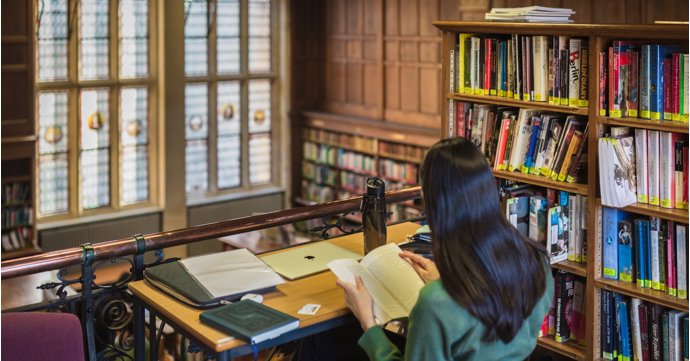With a wealth of experience and nine years working at Cheltenham Ladies’ College, Dr David Gamblin, Head of Upper College and Assistant Head Academic, spoke to SoGlos about coping with exam pressure.
From handy tips on how to structure revision sessions, how parents can help at home, and how to find that balance between work and play, Dr David Gamblin shares invaluable advice in this expert insight interview.
What is the best way to structure revision time?
The most important thing is finding a structure which works for each child.
Routine is also very important. It’s best when students revise in periods of time that match their exams. If the exams are at 9am in the morning, students should be revising at 9am so that their body and brain are in that zone.
It’s a good idea for students to revise up to the length of the exam, there’s no point revising for four hours solid, if the exam is two hours long.
Students also shouldn’t be too ambitious, it’s better to do something well than trying to revise two years’ worth of material in two hours.
What advice would you give to students who are getting stressed with revision and exams?
I would advise students to talk to people around them. They can find out who their motivators are. If they’re having a bad day, they can ask who do they know that cheers them up? It’s important to also build treats into the revision programme.
When a student is in the zone with revision and it’s going well, they should keep exploiting that use of time. Likewise, if the revision is not going well, they need to be strong enough to stop and know that it’s time to have a rest.
What support is there for students that are struggling?
Here at Cheltenham Ladies’ College, we pride ourselves on the relationship the staff have with the students. The teachers are able to respond and empathise with what students are going through.
It’s about having someone on their side saying ‘you can do this’, ‘we’re here to help you’.
We also teach students different revision strategies, how to cope with exam stress, mindfulness and yoga. And we work very hard on avoiding surprises. If a student doesn’t know what’s going on or what’s coming up and we put an exam in front of them, I can see how that creates immense stress. When students know what’s around the corner, they can plan and make informed choices.
How can parents support a child who’s going through exams?
Parents can take an active interest without making the child feel micro-managed. They should make sure the routine at home stays the same and try to create a great learning environment for their child.
It’s a good idea to separate work from play, and parents can help with this by making a designated working space for distraction-free learning. They can also reward the process of revision and not just the outcome.
I think there is a distinction between active and passive learning. Students can spend hours reading something but that’s not any use if it doesn’t go in. Parents can help by asking ‘what did you learn on this bit here?’
Revision cards are another great way for parents to get involved.
Tell us about the importance of balancing school work with fun activities?
I always say that students’ grades will get them an interview, but what they do outside of their studies is what will get them through an interview. It’s important to have time for the body and mind to recuperate.
The pressure that young people are under is immense and what they have to do is no mean feat. What students are doing is tough, but they’re doing a great job regardless.
For more information, visit cheltenhamladiescollege.org.





















